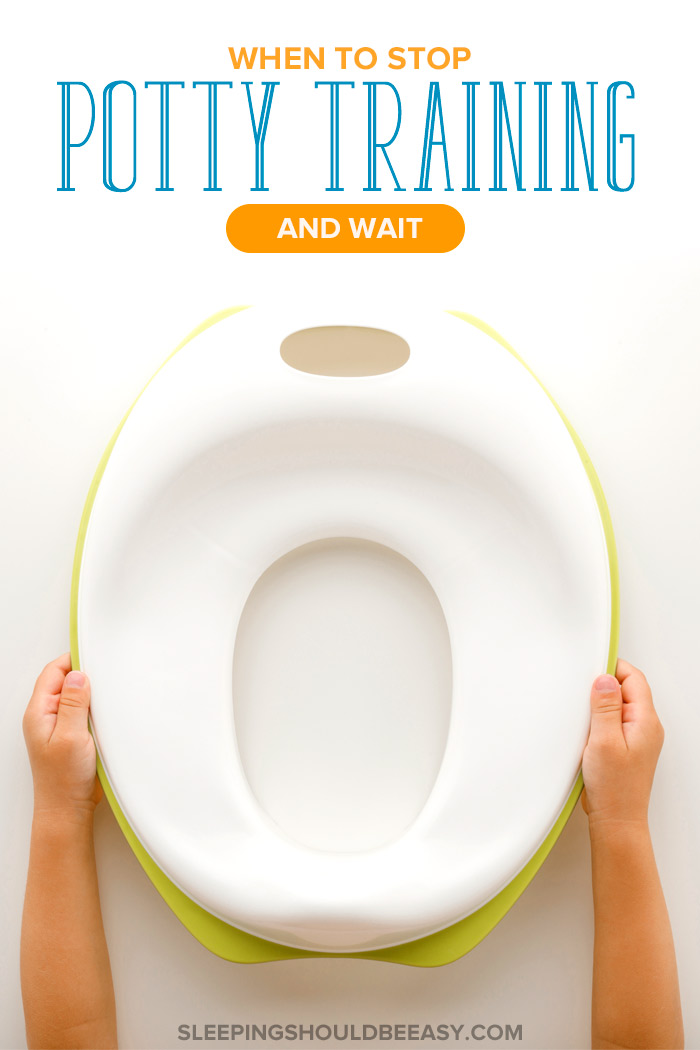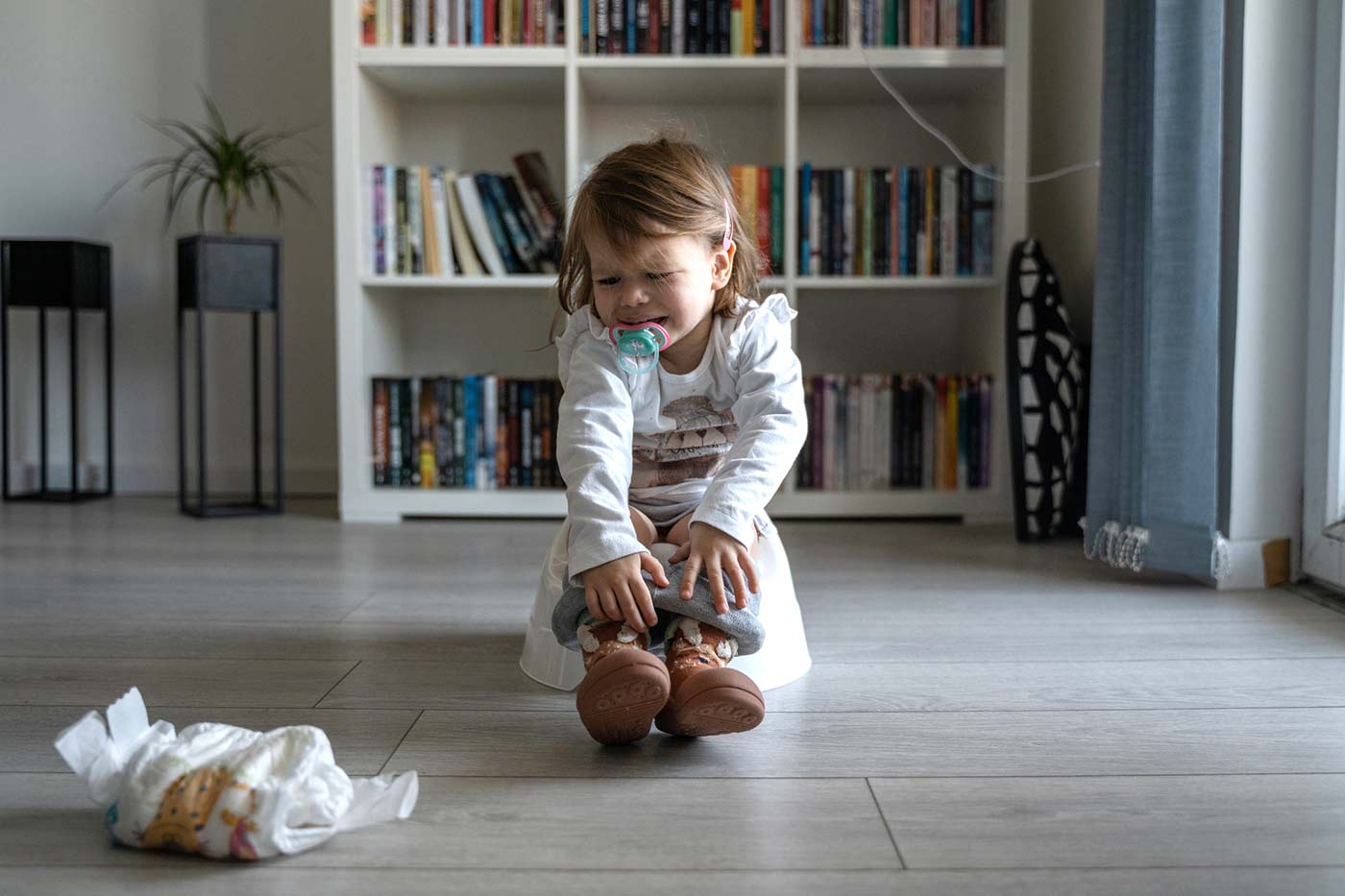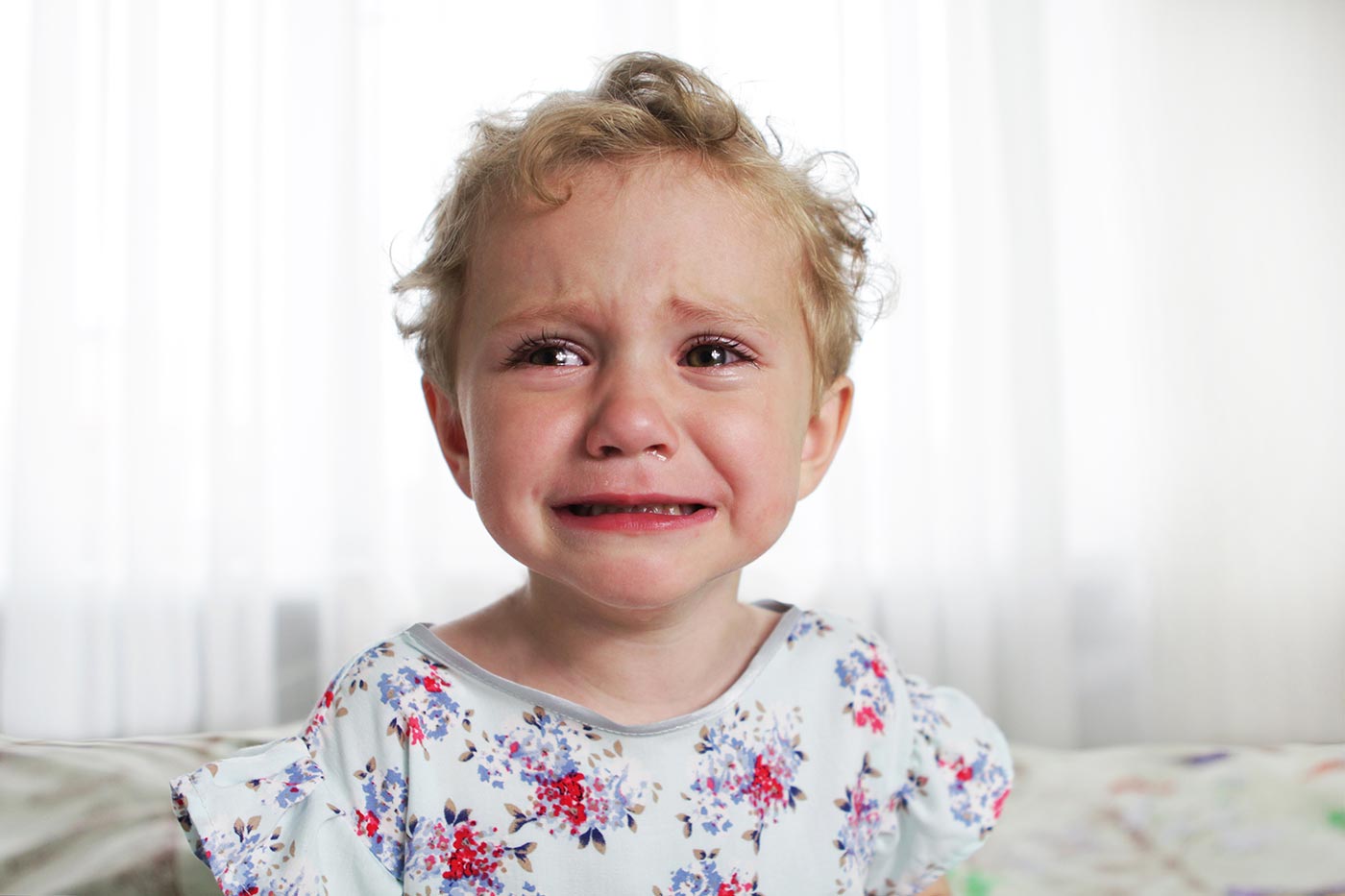When to Stop Potty Training and Wait
Wondering when to stop potty training and wait? Stopping and restarting isn’t an easy decision—learn the signs your child isn’t ready here.
 I don’t think any parent anticipates how draining potty training can be at times.
I don’t think any parent anticipates how draining potty training can be at times.
Despite what I thought were signs of readiness, potty training my son became way too emotionally exhausting. I knew it shouldn’t feel like a battle, especially since both of us felt equally defeated. I had to accept that perhaps he just wasn’t ready yet.
Still, even if taking a break would be the “smart” thing to do, I couldn’t help but feel like we were giving up on all the preparation and hard work we had done to get to that point. So, it became a constant pull between continuing potty training or pausing it for later.
Deciding to keep potty training or not isn’t an easy decision. You often hear advice to be consistent with parenting and hold your ground. But at what point is it better to pause and try something different?
After three kids, I’ve learned a few reasons to either put potty training aside for the future, or at least try a different approach. Below, are eight reasons to stop potty training and wait:
Table of Contents
1. Your child doesn’t care if their undies get dirty
Convincing a child to use the potty often relies on the discomfort he feels when he soils himself. Wet undies or a pull-up full of poop are often uncomfortable enough to want to give potty use a try.
But some kids don’t seem to “mind” having a dirty diaper or could easily go about their day with a soaked diaper. They’re less inclined to ask to be changed, much less be bothered to stop what they’re doing to sit on a potty.
They also may not have full bladder control yet or the ability to sense the urge to pee or poop (and hold it in long enough to get to the potty).
Free email course: Want to potty train without the power struggles? Join my newsletter and sign up for the free 5-day email course, Peaceful Potty Training! No more putting unrealistic deadlines or using rewards that fizzle. Sign up for the email course now:
2. Your child refuses to sit on the potty
One of the most important factors of using the potty? It’s sitting on it. You may have to pause potty training if your toddler refuses to sit on the potty. You can’t force her to sit, and even if you could, she wouldn’t be relaxed enough to pass bowel movements.
It’s hard to blame her, either. Think about it: For the first few years of her life, all she has known is using a diaper. She peed and pooped in any position, any time of the day. Now, she has to learn a different way that could feel overwhelming or even scary.
You didn’t force her to walk when she wasn’t ready, right? So, there’s no reason to push her to use the potty, either.
3. Your child is having more accidents
Accidents are expected during potty training, especially in the beginning. But if your child is having more of them as time goes on, that might be a sign to pause and try again later. Perhaps she’s not even trying to hold her pee or poop long enough to get to the toilet and has reverted to her diaper habits.
One reason accidents are increasing could be that she’s no longer enticed by potential rewards you’re offering, especially if they’re tangible ones like stickers and candy. The allure has faded and she has less incentive to use the potty. (This is one reason we shouldn’t reward kids with incentives like these.)
Don’t worry—restarting down the line isn’t like starting from scratch. You’ve already taught her the basics, so she has an idea of what to do by the time you try again. She might even have learned how to listen to her body so that potty training comes much easier the second time around.
4. Your child is going through big changes
Your child might be going through major changes in his life, whether expected or not, that could make potty training more challenging.
Perhaps he just enrolled in daycare or preschool, has welcomed a baby sibling, or is adjusting to a new toddler bed. Maybe he got sick out of the blue or the holidays have made consistent potty use that much harder. Or he might be going through developmental milestones like teething or separation anxiety.
Big changes could also be happening to you, which can affect how well you can help him use the potty. An older family member might be needing more of your time and care, you got a new job, or financial problems are causing more stress.
No matter the reason, life changes are often enough of a reason to pause potty training and try again when your days have quieted down.
And don’t think that you have to “give up” completely. You can still keep a few habits in your routine, like taking him to the potty in the morning or talking about it during diaper changes. Perhaps you can continue to put poop from the diaper into the toilet, or he can accompany you to the bathroom when you have to go. Keeping it light in the meantime can feel nice because there’s no pressure on either of you.
5. Your child will only pee or poop in a diaper
See if this sounds familiar: Your child fights going to the potty and refuses to let anything come out when he’s sitting on one. But the minute you put him back in a pull-up or diaper, he’ll pee or poop within minutes.
As you might imagine, convincing him to use the potty can feel impossible when he insists on only going in a diaper. You’d rather not put him back in diapers, but you’re concerned about possible constipation if he holds his poop (which he can seem to do for days).
If you find yourself in this predicament, you likely need to be completely diaper-free and only have undies. It’s like being on a diet when you know you have a carton of ice cream in the freezer. It’s much harder to stay the course when your child feels like he has a “backup” nearby.
6. You’re getting pressure from others
Do you feel compelled to potty train because of pressure from others—whether unsaid or not?
Maybe your mother-in-law has been asking why your child isn’t potty trained yet, or the preschool you plan to enroll her in requires her to be potty trained. You might even be comparing her to other kids her age, worried that they’re all potty trained but she’s not.
Pressure from any source can’t make potty training any easier. Tune negative comments out, and see if you can work with the preschool (or ask for their suggestions) about potty training before she starts.
And if it feels like she’ll never potty train, remember that he won’t go to kindergarten in a diaper. Our pediatrician reminded us of this when we began our journey. Barring medical or developmental reasons, most kids don’t go into kindergarten wearing diapers. They eventually learn how to use the potty before then.
7. Your child says “no”
Does it feel like your child throws a fit any time you mention using the potty? It’s tempting to continue with potty training despite her protests.
But consider whether this is a simple “no,” or one that you ought to respect. We teach our kids about body safety, yet here we are overruling them when they outright say they don’t want to use the potty. We can’t “make” them pee or poop, after all.
If your child continues to push against using the potty, consider pausing potty training for now until she’s more willing.
What to do when your 3 year old says no to everything.
8. You’re both getting upset
Perhaps the biggest sign to know when to stop is that you’re both getting upset about the whole potty training process.
Maybe you’re scolding your child for accidents when you used to be more matter of fact. You dread the tantrums she throws if you so much as mention using the potty. And your relationship seems to have soured since you started potty training.
Sometimes we lose ourselves in power struggles that we’re more determined to hold our ground and “win” than consider another option.
Conclusion
It’s easy to feel worried or even defeated if you decide to stop potty training and wait. But remember, every child is different, and your decision to pause may help you in the long run.
Because I truly believe that potty training should be easy. If it’s not, your child may not be ready, or you’re both caught in a power struggle that’s preventing it from being that way.
So, it might be a good idea to stop potty training and wait, especially if you see a few signs. Maybe she doesn’t care if her undies are soiled or refuses to even sit on the potty. She’s having more accidents as the days and weeks go on, or she’s going through changes like a new school or being sick.
She holds her pee or poop if she has to sit on the potty but goes right away the minute she’s in a diaper. You may be feeling pressure from others, whether from school or by social comparisons. Consider pausing potty training if she keeps saying “no,” and most importantly, if you keep fighting about it.
Ask any parent and they’ll tell you there’s no set timeline to potty train, only that their kids eventually ditched the diapers at some point. Rest assured friend, the same can be true for you.
Get more tips:
- 8 Simple Ways to Start Preparing for Potty Training
- When Your 4 Year Old Poops in Their Pants (And Doesn’t Care)
- Potty Trained Toddler Having Accidents on Purpose? Here’s What to Do
- What to Do When Your Toddler Refuses to Poop on Potty
Don’t forget: Join my newsletter and sign up for the free 5-day email course, Peaceful Potty Training below:




